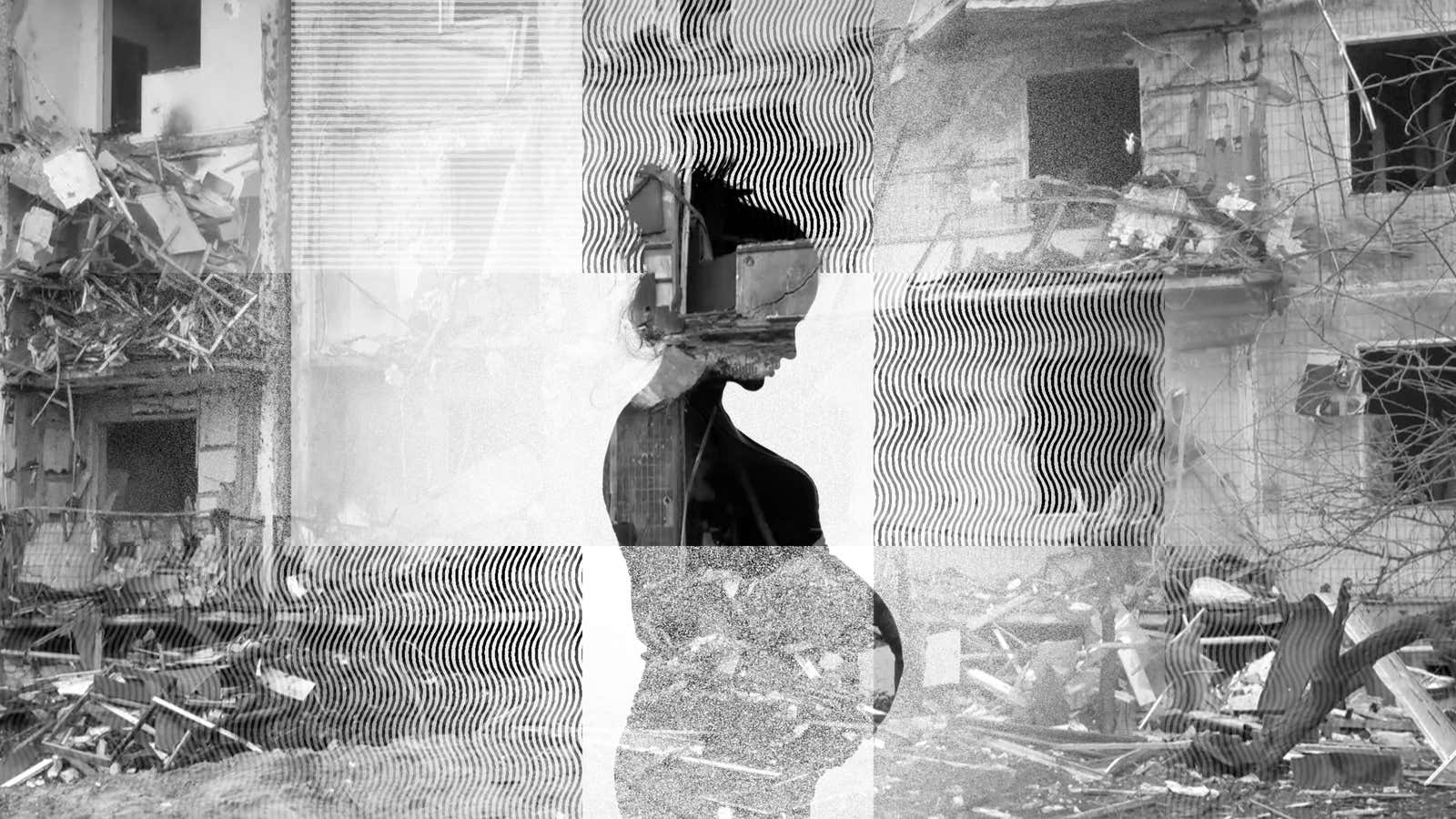As Russian forces continue their attack on Kyiv, Ukrainians have been forced to take cover; people young and old are streaming into underground bomb shelters. Among them are surrogate mothers, part of the country’s booming fertility industry.
Ukraine is the second most popular destination after the United States for foreign couples seeking surrogacy services, according to Growing Families, a nonprofit organization working with couples seeking surrogacy and fertility treatment in Ukraine and around the world. An estimated 2,000 to 2,500 children are born through surrogacy in Ukraine each year, and at least 1,500 couples living in the US, UK, Ireland, Australia, and elsewhere have surrogate mothers and embryos stored at clinics in Ukraine, says Sam Everingham, global director of Growing Families.
Fertility clinics are now fielding a barrage of calls from would-be parents outside Ukraine, who are desperate for updates on their surrogate mothers. Anticipating an attack, some facilities have already taken steps to ensure safety of their surrogates, transporting them toward the western regions of the country. BioTexCom, a fertility facility in Kyiv, even built a bomb shelter to protect its surrogates and infants. The shelter is equipped with gas masks, sleeping bags, canned food, and cribs. It can accommodate 200 people, BioTexCom legal advisor Denis Herman said in a YouTube video this week.
A majority of the fertility clinics in Ukraine are located in Kyiv, which is being targeted by Russian troops. According to the European Society of Human Reproduction and Embryology, a membership body of fertility clinics operating in the EU, there are at least 33 private and five government-run fertility clinics operating in Ukraine.
Couples from Australia, Ireland stranded in Ukraine
“If your child is in a building that caught fire, won’t you run inside to rescue your own flesh and blood?” asks Glenn McGill (a pseudonym), an Australian who along with his wife hired a surrogate mother in Ukraine. She is now 36 weeks pregnant and due to give birth in March.
McGill and his wife, who have spent seven years attempting various fertility treatments, had even booked a flight to Kyiv to be with the surrogate when she gave birth.
A clinic in Australia froze their embryos, then a representative from the clinic in Ukraine traveled to Australia to collect the embryos and return to Kyiv. McGill and his wife are in touch with their surrogate via an app that translates English messages into Ukrainian. “Our surrogate is in constant contact with us and we are worried about her and her entire family,” he tells Quartz. McGill’s surrogate is staying with other surrogates carrying children for foreign couples. “She is in Kyiv in an apartment building where the clinic and the agency had put her,” McGill says. “We are watching the news and praying for their safety. We’re helpless.”
According to the Irish Families through Surrogacy (IFTS), Ukraine is a particularly popular destination for Irish couples: Each year, between 30 and 40 Irish couples travel to Ukraine for surrogacy. IFTS spokesperson Sara Byrne, who is coordinating with Ireland’s government, herself has a two-year-old daughter who was born through surrogacy in Kyiv. “We are supporting several couples who have surrogates in Ukraine who are due to give birth in the next couple of weeks,” she tells Quartz.
How Ukraine became a popular surrogacy destination
In 2015, after India, Thailand and Nepal outlawed surrogacy for foreign couples, an increasing number of couples sought surrogacy services in Ukraine, which permits the process for heterosexual couples and single women.
Compared to the United States, surrogacy services in Ukraine are much cheaper: $30,000 to $50,000 for surrogacy and associated fertility treatments, versus a price tag above $100,000 in the US. Costs depends on several factors, including the clinic, the number of fertility cycles needed, and whether or not the couple is opting for donor eggs.
Another factor that has helped with Ukraine’s popularity as a surrogacy destination is the easy availability of women ready to donate their eggs. Unlike the UK, Ukraine allows its donors to remain anonymous.
“It is challenging for fertility clinics to find donors who are open to revealing their identity,” says Aleksander Wiecki who runs several informational sites to educate those seeking fertility treatments abroad. “As Ukraine permits anonymity to donors, the clinics there have it easy to find donors.”
An uncertain future for surrogacy in Ukraine
Sam Everingham from Growing Families is currently working with at least 23 couples who have a surrogate pregnant with a child or an infant in care in Ukraine.
Those couples have no alternative but to travel to Ukraine to collect their newborns. On Feb. 24, Everingham was helping two Australian couples travel to Warsaw, Poland, in an attempt to enter Ukraine through the land border. Ukrainian law requires both parents to be physically present to process the necessary paperwork to recognize the couple as the child’s legal parents. IFTS’ Sara Byrne says there are also Irish couples stuck in Ukraine, whose surrogates have recently or are about to give birth.
Apart from pregnant surrogates, foreign couples are worried about the embryos stored in Ukrainian clinics. “For some couples, these embryos are their last chance to parenthood,” says Everingham, who is helping another 30 couples with embryos stored in Ukraine.
Some clinics in neighboring Georgia are preparing to transfer embryos from Ukraine to their facilities, but it’s not an easy task. “We rely on commercial flights to transfer embryos and with flights being shut there is not much we can do,” Everingham says.
As Russian forces enter Kyiv, McGill and his wife are anxiously waiting at home. The Australian government has issued an advisory to not travel to Ukraine, but the couple’s bags are packed. McGill says he will make the trip to bring their child home.




